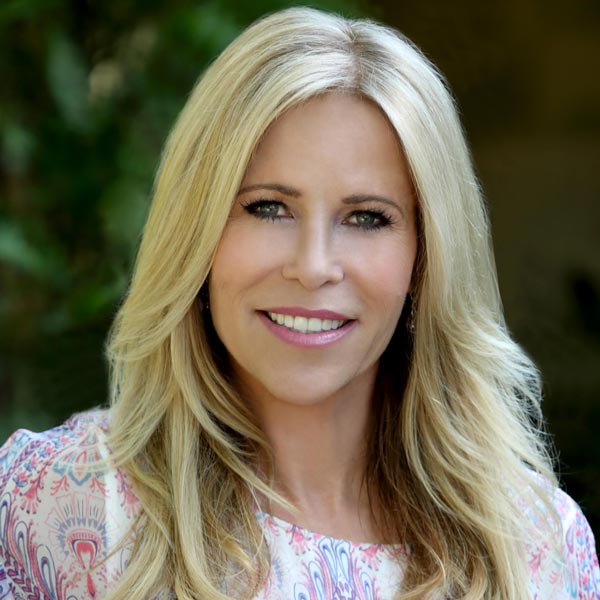We’re all born with a unique soul. My soul is different from yours and every other human soul. A person’s soul gives them a distinct and authentic human life. As Pastor Robert Morris of Gateway Church said in his sermon, “We are three parts: body, soul, and spirit. A person is a person because he has a soul.”
The soul has been given many names over the ages in almost every culture. Synonyms for soul include the self, ego, the I, oneself, identity, person, character, mind, intellect, inner person, subconscious, and false self. The soul is what psychology refers to as the psyche.
The soul is one of the parts of a human. According to the Bible, we’re body, soul, and spirit. Both the soul and spirit are located in our heart. When our heart is broken or grieving, it’s our soul that initiates the thoughts, feelings, and desires we hear and feel. Grief calls from our soul to make the time for healing and transformation.
It’s our spirit and God’s Spirit that together shine light on the pain in our soul. The spirit of the (hu)man is the lamp of the Lord. When we are yoked with Christ, He shares in our burdens and pain, making them easier. Then the path of healing is lit up before us and inside of us.
Both our soul and our spirit get the attention of God’s Spirit when our heart is in pain. We cannot hide from ourselves or from the love of God for long. Our conscience and our soul will be trying to get our attention so that we can heal and move on to peace and joy once again.
Every harm done to you can cause you to lose a piece of your heart. The healing of your heart is what grief is here to teach. If you can believe God is there to mend and heal your heart, you’ll receive the promise that you’ll be healed. But it starts with belief.
What does it mean to believe?
Do you believe you were meant to live a life of peace and joy? The Bible promises us that we can live in the Kingdom of God, which is a place of righteousness, peace, and joy in the Holy Spirit. If you cannot believe this good life is for you, or if you cannot receive God’s Holy Spirit, you may be destined to live out what you do believe.
If you have doubts that God is for you, that He is a healer, that He can restore peace in you, then chances are your doubts will come true. You may be blocked from receiving the blessings and promises of God. Soul care can prevent this from occurring.
Step one to soul care is believing you’re a Divine creation, part human and part Divinity. You’re soul and spirit living in a body, connected to God’s Holy Spirit in your heart. It’s good to challenge every doubtful or unbelieving thought and learn to surrender your soul to God.
Once you do, you’ll have the power to take care of your soul. God is a higher power, and we humans are weak. We need His Kingdom, power, and glory to continue to give us the grace to return to ever-increasing amounts of love and strength.
What are the steps to soul care?
There are steps you can take during times of grief to care for your soul, so God can lead you out of your grief and into a place of glory, where you can grow stronger in His Light and with His guidance. The steps are as follows.
1. Self-Love and Faith
Our soul is our self. To have self-love, we need to take care of our soul. One of the main ways to take care of ourselves is to make a commitment not to abandon, reject, or abuse ourselves. It’s actually a difficult task.
If we can become conscious of the times when we turn outside of ourselves to relieve our pain, we’ll begin to see how our own patterns and habits are not very loving. Instead of finding love, compassion, acceptance, and wisdom from our internal guidance system (the Holy Spirit), we turn outward to wine, shopping, distractions, and other pleasure-seeking behaviors, which could be detrimental to us.
If we’re not that good at loving ourselves, Jesus tells us to love God first and that God is in our hearts. In other words, Jesus says love yourself. So, find the love for yourself and for God in your heart. Have faith that God is always there for you. You’ll discover He is who He says He is.
2. Protect the Soul
The soul is where our emotions come from, which isn’t surprising because many of our emotions seek to protect us. Fear and anger keep us on alert and looking for danger. Depression and grief slow us down so that we can heal before moving forward.
It’s important we listen to our soul. One of the main purposes of our soul is to keep us alive and keep us moving forward to its Divine destiny. When we ignore or repress the voice of our soul, we can lose out on important information that can affect how we experience our life.
Our soul can inform and alert us to dangerous people, situations, and things we need to change. We protect the soul by placing value on our truth in every moment. God’s Spirit of Truth speaks through our soul and helps us to have wise discernment so that we don’t get ourselves in trouble.
3. Healing the Soul
Our soul will be wounded over and over during our lifetime. It’s vulnerable to darkness, and it’s where darkness or pain is stored. All thoughts and emotions and the energy of each loss or pain are stored in and come from our soul. When we experience a traumatic event or a loss that causes grief, it’s energetically stored in our soul if we’re unable to heal the pain from that event.
If we’ve been wounded over and over without healing the pain that was created, our hearts can become burdened by this darkness in our soul. The darkness I refer to is the depression, addiction, and unconscious behaviors we refuse to address, acknowledge, or shine light on so that these dark energies can be healed and released.
Healing the soul requires vulnerability and exposing the darkness and stored pain to God’s Light. We do this through acceptance, forgiveness, and love, each of which brings healing and new life. All of these actions take place in our hearts. There, we can learn to safely look at our pain and let God do the healing and releasing so that we’re returned to a state of peace and joy.
4. Reading or Listening to the Word of God
God’s Word, or Scripture, is referred to as living water. When we do what’s written in the Bible, or we do what Jesus did by example, we can learn how to let go of control and let God restore our soul. For example, in the Bible, Jesus says, “Come to Me, all who are weary and heavily burdened and I will give you rest. Take My yoke upon you and learn from Me, for I am gentle and humble in heart, and YOU WILL FIND REST FOR YOUR SOULS. For My yoke is easy and My burden is light.” (Matt. 11:29-30)
In times when our heart is heavily burdened with grief, pain, and suffering, we can learn to connect to Christ. When we do, He shares (yokes with) our distress, and there’s an ease that provides rest.
We can do this during daily quiet time with God. The Bible encourages us to “Be still and know God.” (Ps. 46:10) Jesus tells us, “Here’s what I want you to do: Find a quiet, secluded place so you won’t be tempted to role-play before God. Just be there as simply and honestly as you can manage. The focus will shift from you to God, and you will begin to sense his grace.” (Matt. 6:6)
There are many directions for healing and for receiving God’s Promises located in the Bible. God is someone we can learn to trust. We learn that He is for us and wants to take us from grief to love, from anxiety to peace, from depression to optimism, from guilt to trust, from anger to courage, from shame to compassion.
God is the defender, protector, shield, and rock. He gives us a solid foundation where we can daily recover from all of our suffering and hardship. I learned this by reading and studying His Word in the Bible and by practicing the teachings of His Word, Jesus.
5. Spiritual Direction
The spiritual director is a coach and companion who teaches you to listen to the Holy Spirit through a variety of spiritual practices. These practices help you to heal the soul and cultivate a life of listening to Spirit and surrendering to the ways of God for a healthy balanced life.
Spiritual direction is an interpersonal relationship in which one helps another to learn how to grow, live, and love in the spiritual life. A spiritual director helps another person understand what God is doing and saying.
In this form of guidance, both parties make a commitment to create time and space for a sacred encounter with God. This shared journey with another who’s trained and gifted can help you deepen your relationship with the Divine.
The practice of spiritual direction is an opportunity to deepen your relationship with God and your spiritual understanding of grief and loss. You can experience how to listen to the guidance of the Holy Spirit in the depths of your pain while learning practices for healing your own personal spiritual journey. If you choose this as part of your healing journey, together you with your spiritual director will seek encounters with the Divine.
6. Therapy
Psychotherapy, depending on the therapist, can be used for soul healing. Psyche means soul and therapy is to receive treatment or to relieve and heal. A good therapist will help you to learn about your soul through compassionate listening and the asking of good questions. The right therapist will teach you how to find and embrace your truth, not theirs.
A bad therapist will tell you what to do, what to feel, and what to think, thereby ignoring and perhaps further repressing the truth and wisdom located in your soul. It’s also important to have the same belief system as your therapist. Someone who’s an atheist will lead you in a different way than someone who’s a believer in God.
Talk therapy has the effect of bringing light to the deep emotions and thoughts stored in the soul. It can also be used as a place for confession. Letting someone else know our behaviors or mistakes releases the energetic burden of holding them in our hearts.
In this way, the darkness is dispelled. It disappears. As it says in the Bible, we are to share our faults, mistakes, and sins with God and others which enables the darkness to be dispelled. “If we confess our sins, he is faithful and just and will forgive us our sins and purify us from all unrighteousness.” (1 Jn. 1:9)
7. Grief Group
A grief group can be an excellent way to find community with others suffering similar losses. This group can help people move through the grief process. It’s a safe place to share stories of the circumstances surrounding your loss, plus all the details of what led up to it as well as what happened afterward.
It’s a place that can help people work through their feelings. Many people who experience loss benefit from talking about their grief with others experiencing similar emotions. In a grief support group, each individual is able to share their feelings attached to their individual loss and receive emotional support, along with validation from others experiencing similar feelings.
Here are some positive feelings and takeaways you could experience from being a part of a grief group;
- Feeling less lonely, isolated, or judged
- A reduction of distress, depression, anxiety or fatigue
- A place to talk openly and honestly about your feelings
- Improved skills to cope with challenges
- Motivation to manage chronic conditions or stick to treatment plans
It can be very helpful to have a good support team of people around you during any time of grief, especially if you’re having a difficult time moving forward. If you need support outside of your family and your personal therapist or counselor, a grief group is an effective choice to add to your circle of healing and your personal soul care during this season of your life.
Are you ready to heal your soul?
Together with God or with a trusted therapist or coach, you can heal your soul and thus your heart. You’ll be restored to wholeness. Doing so requires your willingness to face the reality of your thoughts, emotions, and desires.
You only need to come with a willingness to develop a deeper relationship with yourself, your soul, and with God’s Spirit, which is located in your heart. God will do the rest.
If you would like to learn more about how to improve your life through an approach of feeding the whole person, body, soul, and spirit, follow me on my blog, Facebook, Instagram, YouTube, and LinkedIn, and Medium. If you would like to work with me, schedule a session today.

Tonyah Dee has studied the Bible and wisdom traditions of the world for the last 30 years and teaches about finding ways to increase inner strength, stability, and confidence through practicing spiritual disciplines and healthy habits daily. Tonyah is a nutritionist, registered dietitian (R.D.), and earned her B.S. from Loma Linda University. She also holds certifications in Christ-centered life coaching, and meditation. Tonyah has been published in Scary Mommy, MSN, The Mighty, Mantra Wellness, CoveyClub, Thrive Global. Follow Tonyah on her blog, Facebook, Instagram, YouTube, LinkedIn, and Medium.

